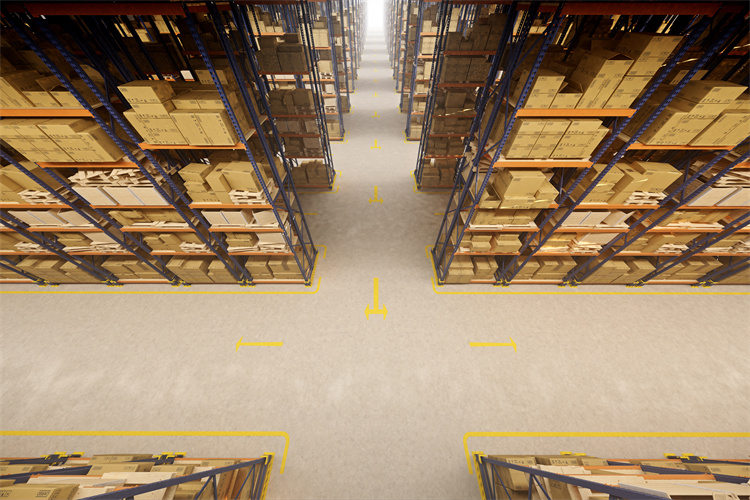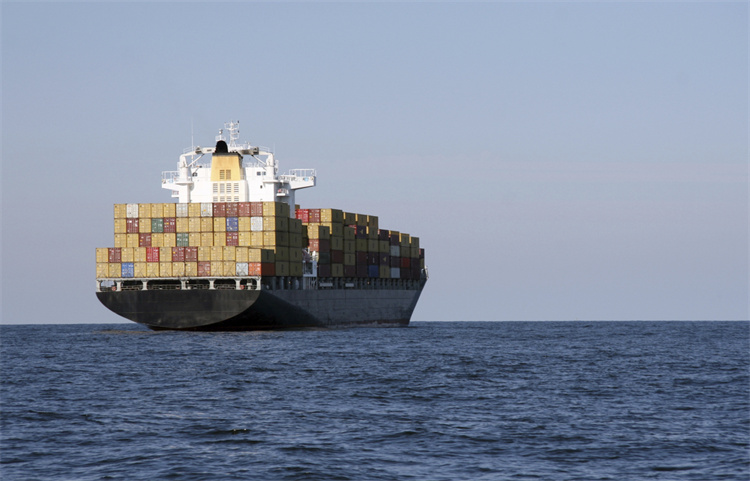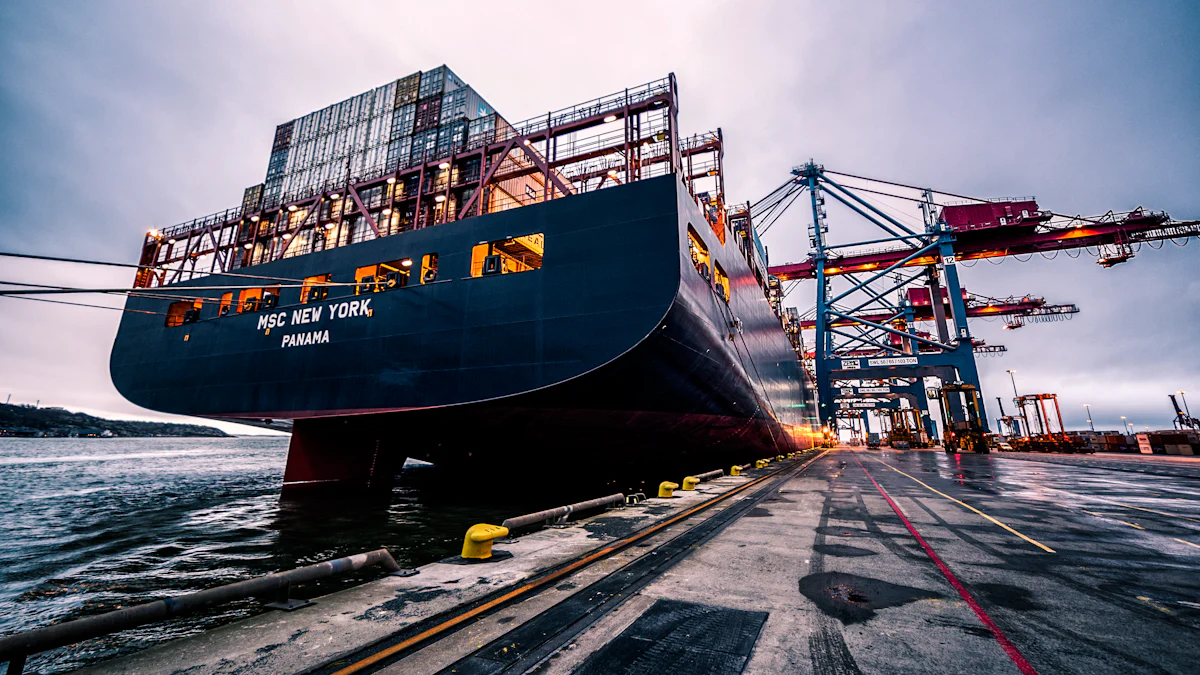Global Trade Dynamics and Their Influence on Logistics

Global trade serves as a crucial driver of economic growth and development worldwide. The logistics industry, valued at over 8.4 trillion euros in 2021, plays a pivotal role in facilitating this trade. By 2030, estimations suggest the logistics sector will surpass $18 trillion. Understanding the influence of global trade dynamics on logistics is essential for optimizing supply chain efficiency. Sea transportation accounted for 47% of goods traded between the EU and the rest of the world in 2023. This highlights the significant impact of trade patterns on logistics operations.
Understanding Global Trade Dynamics

Key Factors in Global Trade
Economic Conditions
Economic conditions shape global trade. Strong economies drive demand for goods and services. Recessions slow down trade activities. Economic stability encourages investment in logistics infrastructure. This investment enhances supply chain efficiency.
Trade Policies
Trade policies influence global trade significantly. Tariffs affect the cost of goods. Trade agreements facilitate smoother transactions between countries. Regulatory changes impact how goods move across borders. Logistics companies must adapt to these policies to maintain operational efficiency.
Market Demands
Market demands dictate the flow of global trade. Consumer preferences shift rapidly. Companies must adjust their supply chains accordingly. High demand for certain products increases trade volumes. Logistics systems need to be agile to meet these demands efficiently.
Trends in International Trade
Emerging Markets
Emerging markets play a crucial role in global trade. These markets offer new opportunities for growth. Companies expand their reach into these regions. Logistics networks must adapt to support this expansion. Efficient logistics solutions are vital for accessing these markets.
Technological Advances
Technological advances transform global trade dynamics. Innovations like automation improve logistics operations. Big data analytics enhance decision-making processes. Internet of Things (IoT) devices optimize supply chain management. Technology integration boosts overall trade efficiency.
Environmental Considerations
Environmental considerations impact global trade practices. Sustainable logistics solutions gain importance. Companies adopt eco-friendly transportation methods. Reducing carbon footprints becomes a priority. Environmental regulations influence logistics strategies worldwide.
Impact on Logistics

Supply Chain Management
Efficiency and Optimization
Supply chain management plays a pivotal role in logistics efficiency. Businesses strive to optimize operations for cost-effectiveness and speed. Streamlined processes reduce waste and improve resource utilization. Companies invest in technology to enhance supply chain visibility. Real-time data analytics support informed decision-making. Automation minimizes manual errors and accelerates workflows. Efficient supply chains meet customer demands promptly.
Risk Management
Risk management is essential for resilient logistics operations. Companies face uncertainties like natural disasters and geopolitical tensions. A robust risk management framework mitigates these challenges. Organizations prioritize risks based on financial impact and likelihood. Strategies include increasing supply redundancy and shortening supply chains. Allocating critical materials to multiple locations enhances resilience. Effective risk management ensures business continuity and customer satisfaction.
Transportation and Distribution
Infrastructure Developments
Infrastructure developments significantly influence transportation and distribution. Governments invest in roads, ports, and airports to support trade. Improved infrastructure reduces transit times and costs. Efficient transportation networks facilitate smooth goods movement. Logistics companies benefit from enhanced connectivity. Infrastructure advancements boost economic growth and competitiveness.
Modal Shifts
Modal shifts occur as logistics adapt to changing demands. Companies explore alternative transportation modes for efficiency. Rail and sea freight offer cost-effective solutions for long distances. Air freight provides speed for time-sensitive shipments. Businesses balance cost, speed, and environmental impact. Modal shifts require strategic planning and investment. Adaptability ensures logistics systems remain agile and responsive.
JUSDA's Role in Global Trade Dynamics
Comprehensive End-to-End Supply Chain Solutions
Integration of Raw Material Procurement
JUSDA excels in integrating raw material procurement into supply chain processes. The company ensures a seamless flow of materials from suppliers to manufacturers. This integration reduces lead times and enhances production efficiency. JUSDA's strategic partnerships with suppliers guarantee consistent quality and availability. The company employs advanced forecasting techniques to anticipate demand fluctuations. This proactive approach minimizes disruptions and maintains steady supply chains.
Manufacturing and Distribution
JUSDA optimizes manufacturing and distribution through innovative strategies. The company leverages state-of-the-art facilities for efficient production. JUSDA's logistics network supports rapid distribution to global markets. The company utilizes data-driven insights to streamline operations. This focus on efficiency reduces costs and improves delivery times. JUSDA's commitment to excellence ensures customer satisfaction and competitive advantage.
Advanced Technology Integration
Big Data and IoT
JUSDA harnesses the power of big data and IoT to transform logistics. The company collects and analyzes vast amounts of data for informed decision-making. JUSDA uses IoT devices to monitor real-time conditions across the supply chain. This technology provides visibility and control over logistics operations. JUSDA's data-driven approach enhances efficiency and reduces risks. The company remains at the forefront of technological advancements in supply chain management.
JusLink Platform
The JusLink Platform represents a cornerstone of JUSDA's technological prowess. This platform integrates various supply chain components into a cohesive system. JusLink enables real-time collaboration among stakeholders. The platform facilitates seamless communication and coordination. JusLink enhances resource utilization and optimizes logistics processes. JUSDA's innovative platform sets a benchmark for supply chain excellence.

JUSDA Solutions
To provide you with professional solutions and quotations.
Challenges and Opportunities
Challenges in Adapting to Trade Dynamics
Regulatory Compliance
Regulatory compliance presents a significant challenge in global trade. Companies must navigate complex international laws. Each country enforces unique regulations. Businesses need a strategic approach to manage these complexities. ABC Corporation serves as a prime example. The company employed a multidisciplinary strategy. This approach protected its interests effectively. ABC Corporation also fostered sustainable partnerships. Clear contracts and risk mitigation strategies proved essential.
Cost Management
Cost management remains a critical concern for logistics companies. Fluctuating tariffs impact operational expenses. Companies face pressure to maintain competitive pricing. Efficient resource allocation becomes vital. Businesses must optimize supply chain processes. Technology plays a crucial role in cost reduction. Automation and data analytics enhance efficiency. Companies can achieve substantial savings through strategic investments.
Opportunities for Innovation
Technological Tools
Technological tools offer vast opportunities for innovation. Big data analytics transform decision-making processes. Companies gain insights into market trends. Internet of Things (IoT) devices provide real-time monitoring. Logistics operations benefit from increased visibility. JUSDA exemplifies the power of technology integration. The company harnesses big data for informed decisions. IoT devices optimize supply chain management. JUSDA sets a benchmark for technological advancement.
Strategic Partnerships
Strategic partnerships drive growth in global trade. Collaborations enhance resource sharing. Companies expand their reach through alliances. Partnerships improve logistics network efficiency. JUSDA excels in forming strategic alliances. The company collaborates with suppliers and manufacturers. These partnerships ensure consistent quality and availability. JUSDA's proactive approach minimizes disruptions. The company maintains steady supply chains through collaboration.
Global trade dynamics significantly influence logistics operations. Recent changes in trade policies, such as tariffs and agreements, have reshaped the logistics landscape. The logistics industry faces challenges from geopolitical tensions and economic uncertainties. However, opportunities arise from digitalization, globalization, and sustainability trends. These megatrends enhance logistics efficiency and visibility. The future of logistics will likely focus on resilience and sustainability. Companies must adapt to evolving trade landscapes to maintain competitiveness. The logistics sector's growth potential remains strong, with estimations surpassing $18 trillion by 2030.
See Also
The Significance of Supply Chains in Global Trade
Understanding the Effects: Trends in Logistics Risks
Revealing How Global Trade Policies Affect Economies
Transforming Logistics: The Influence of Supply Chain Innovation
